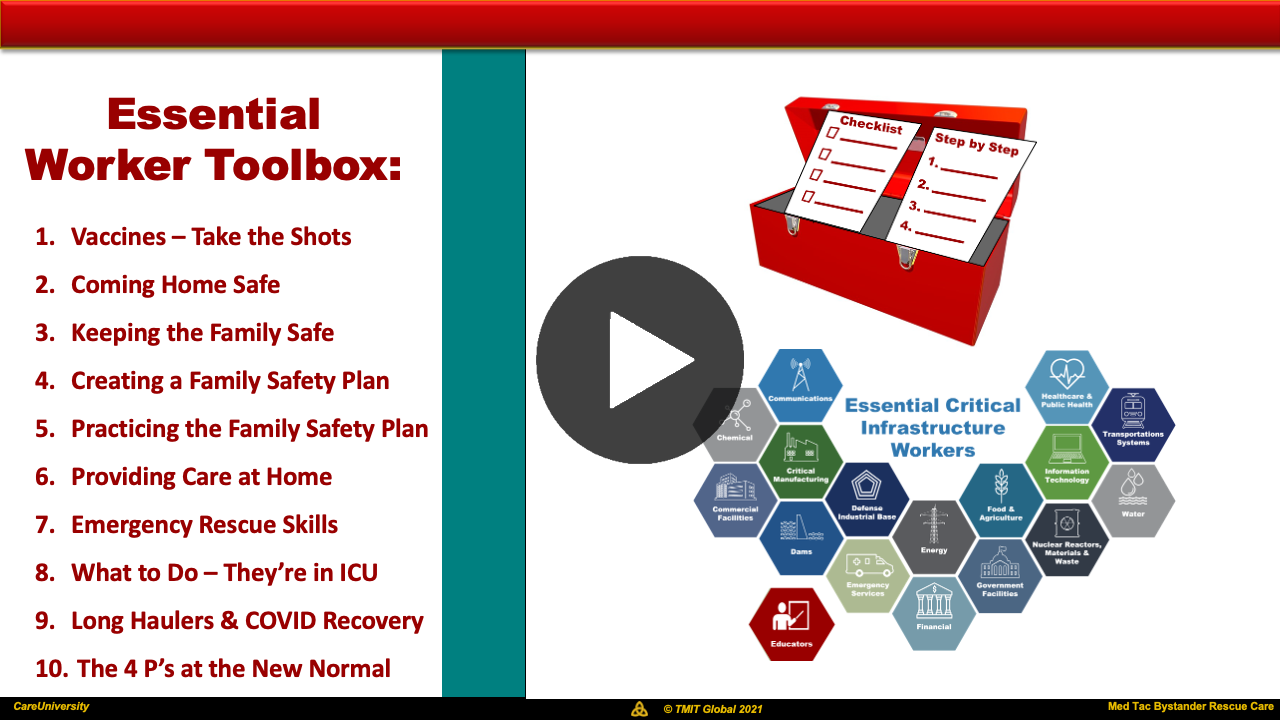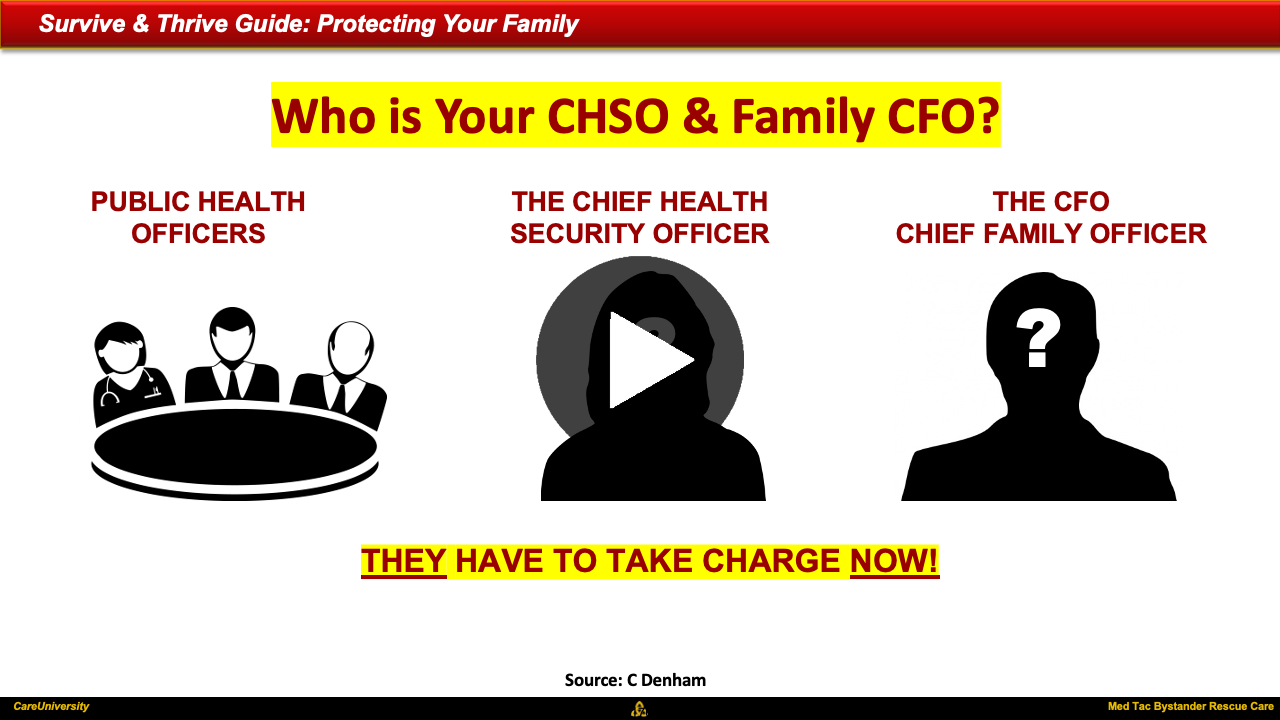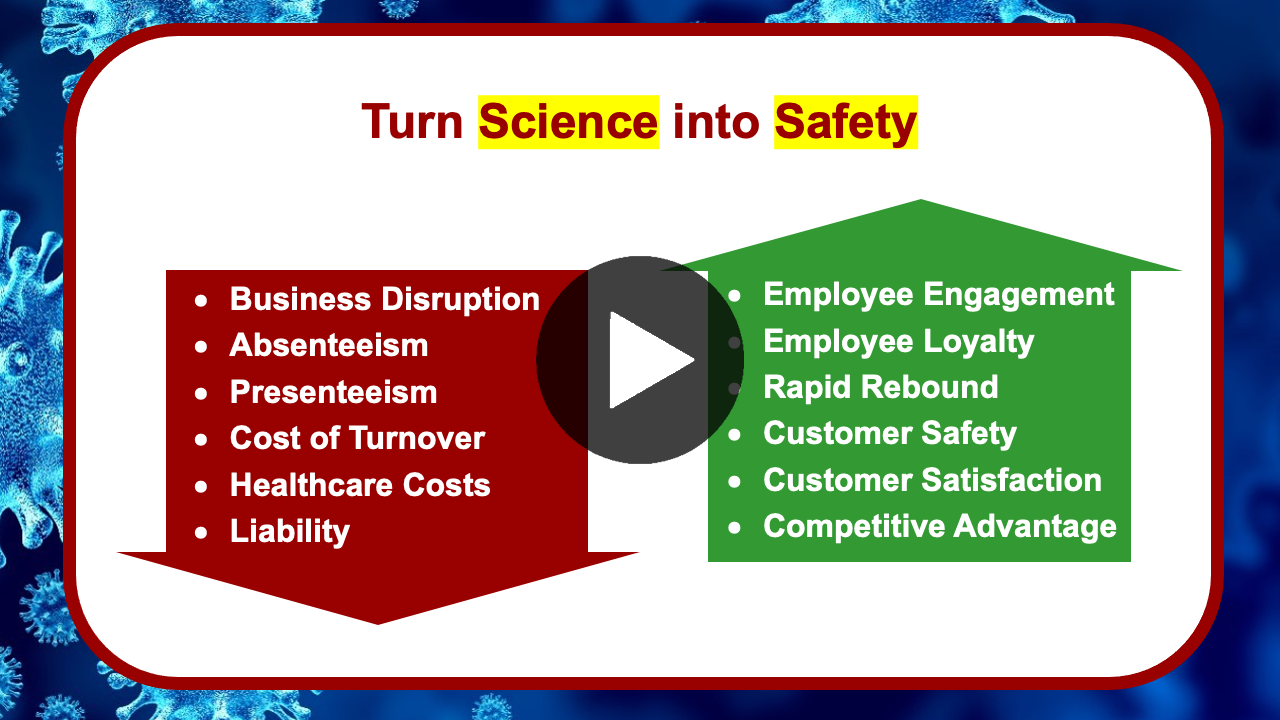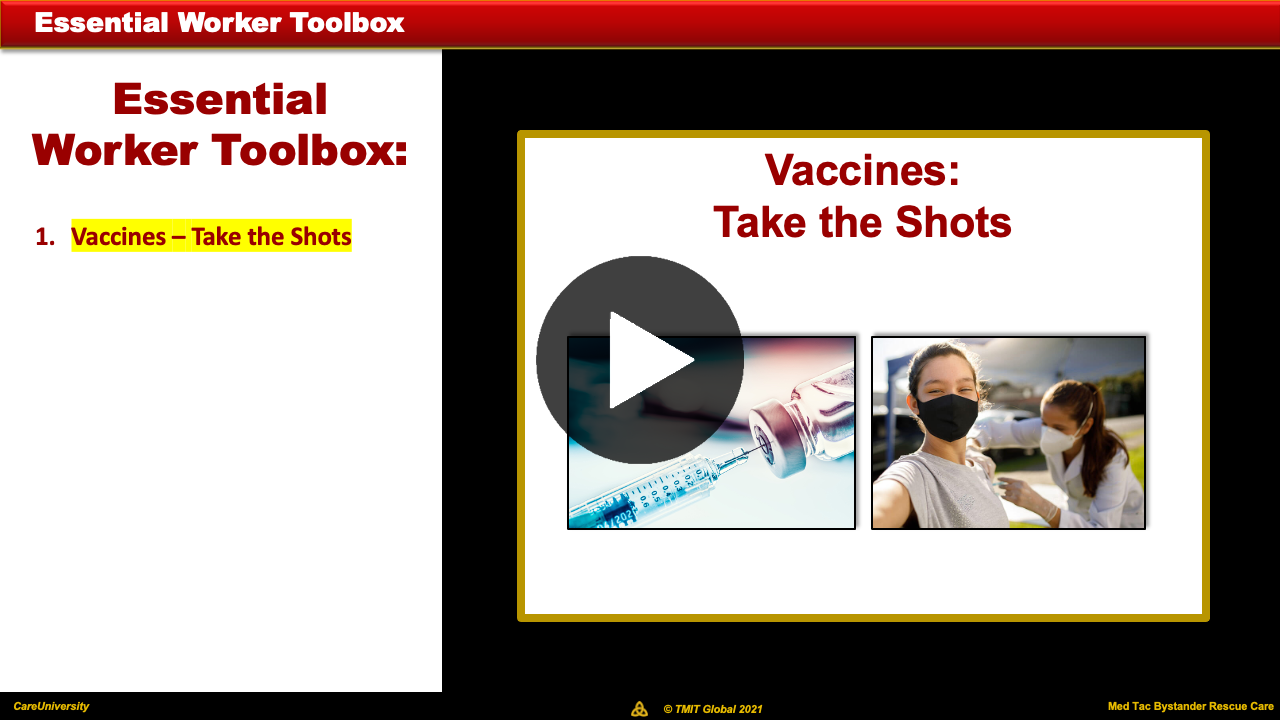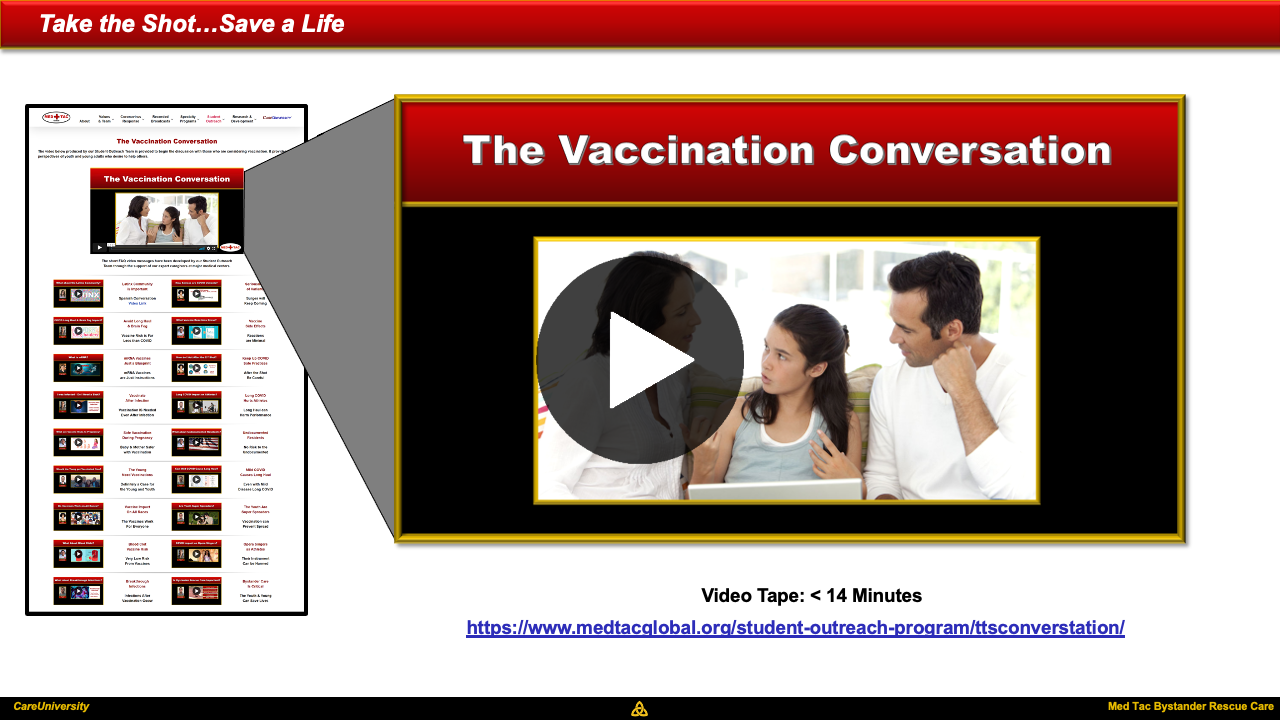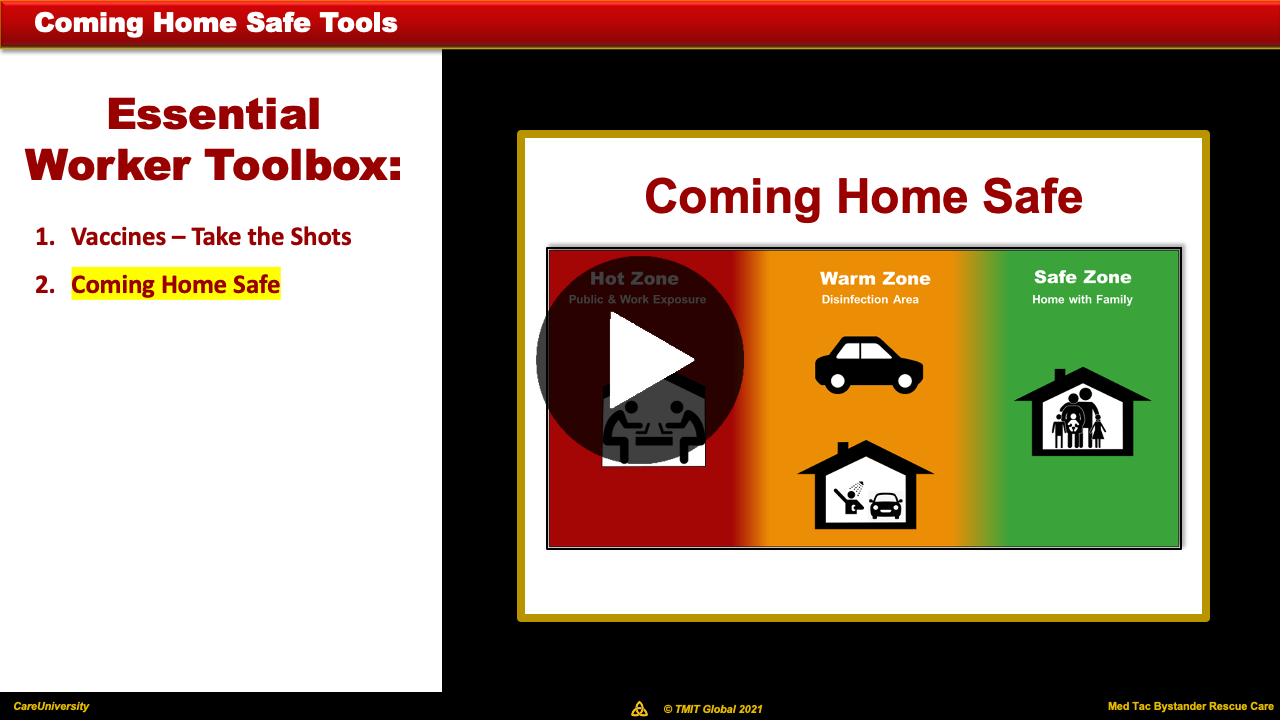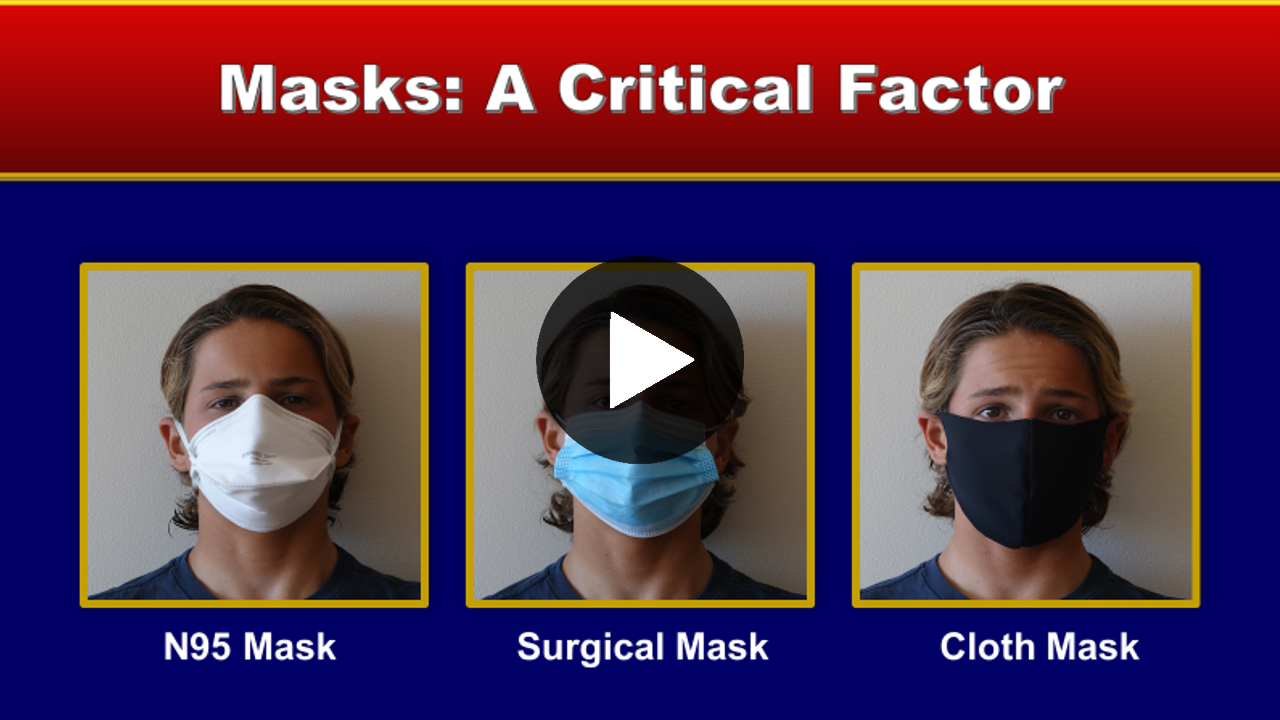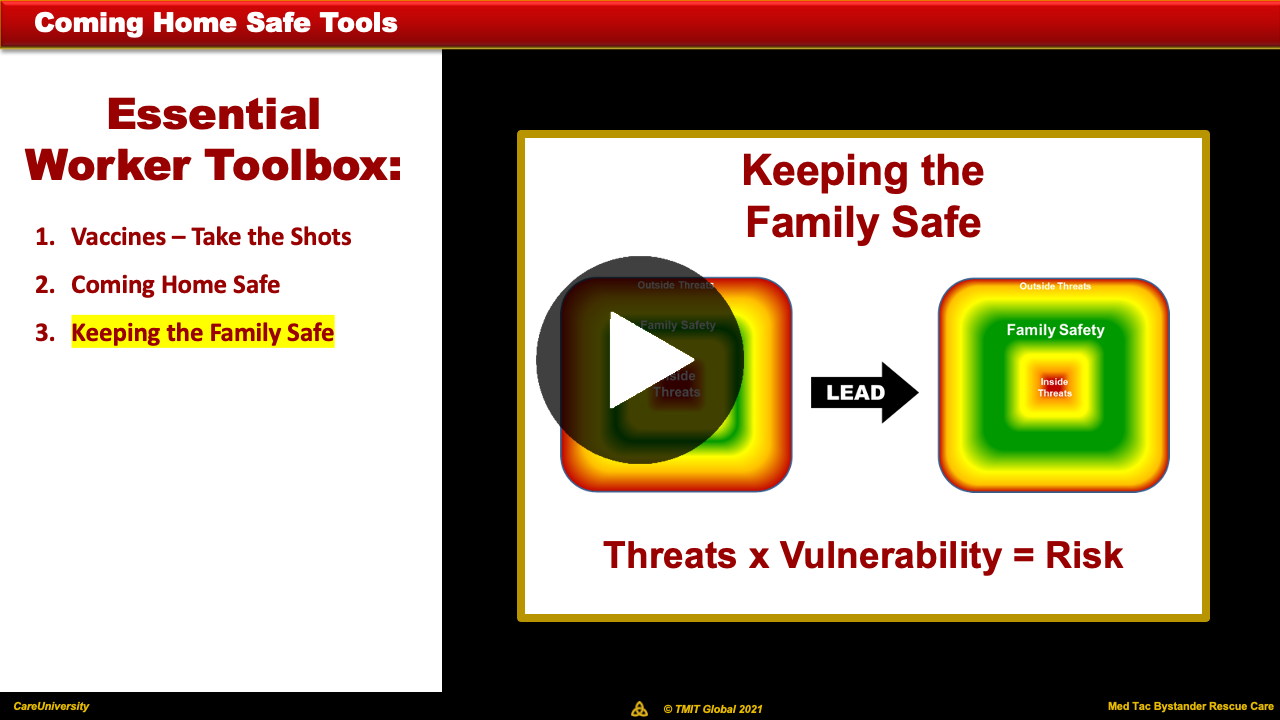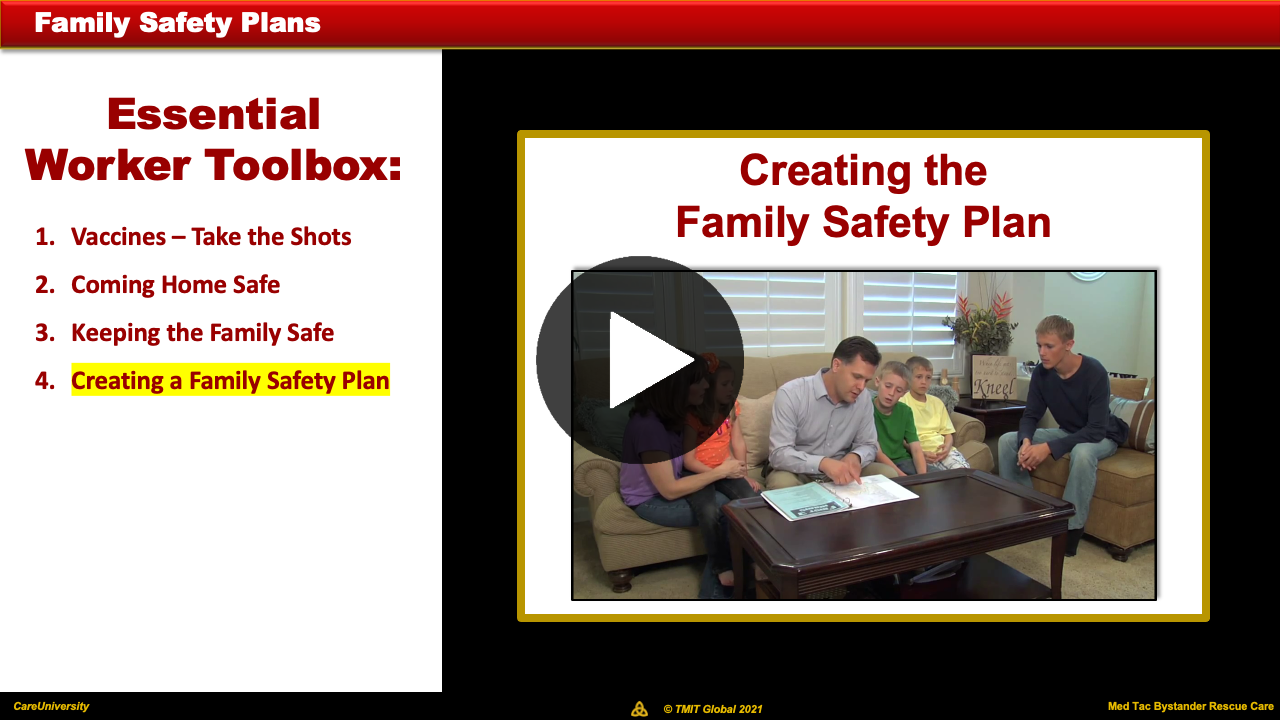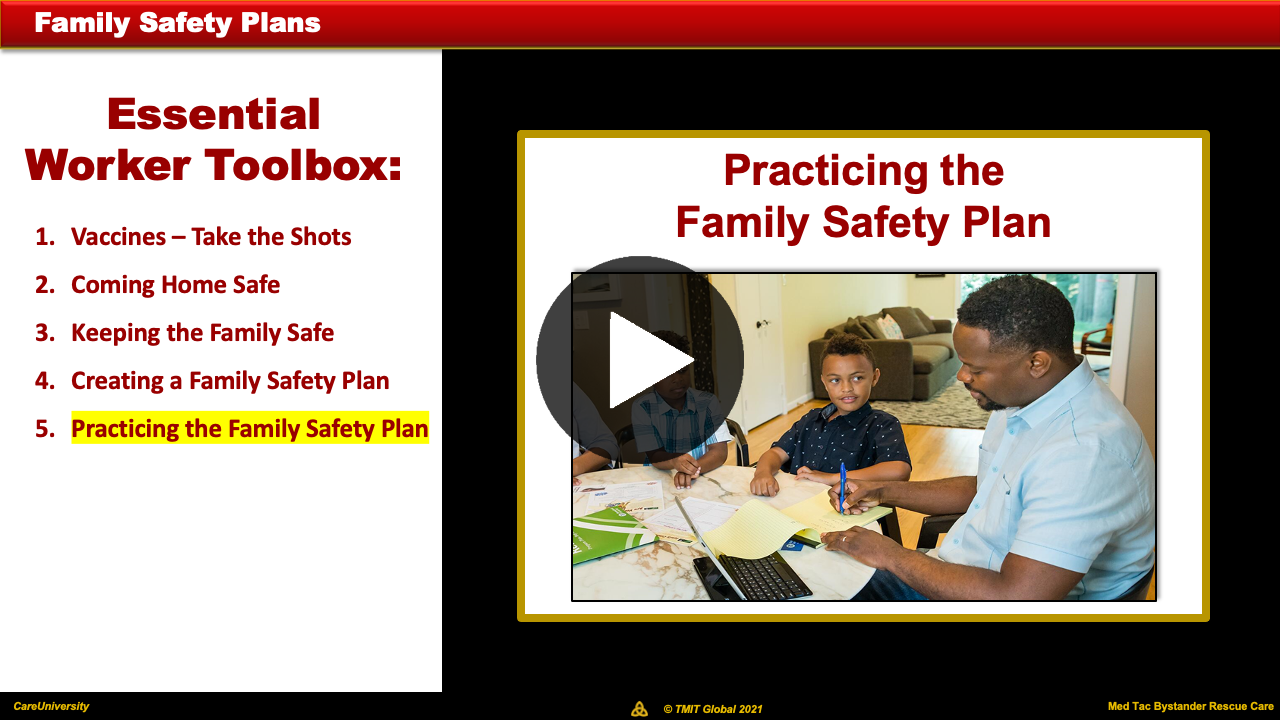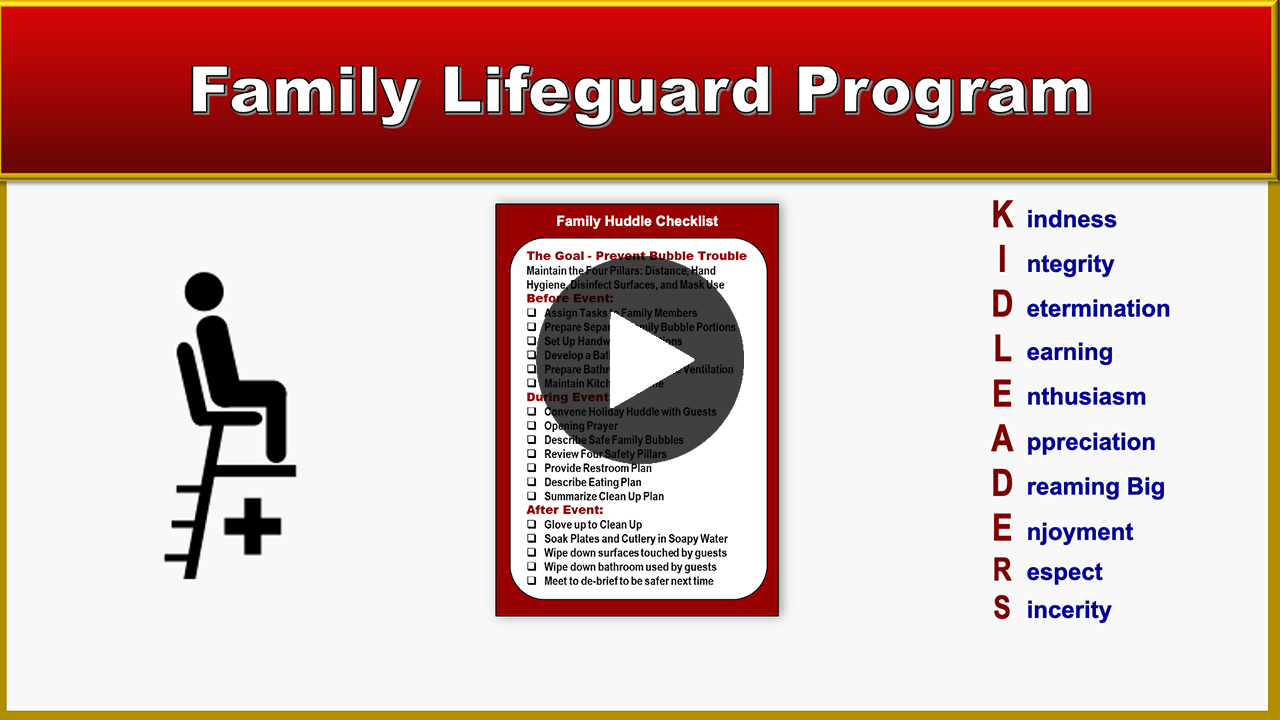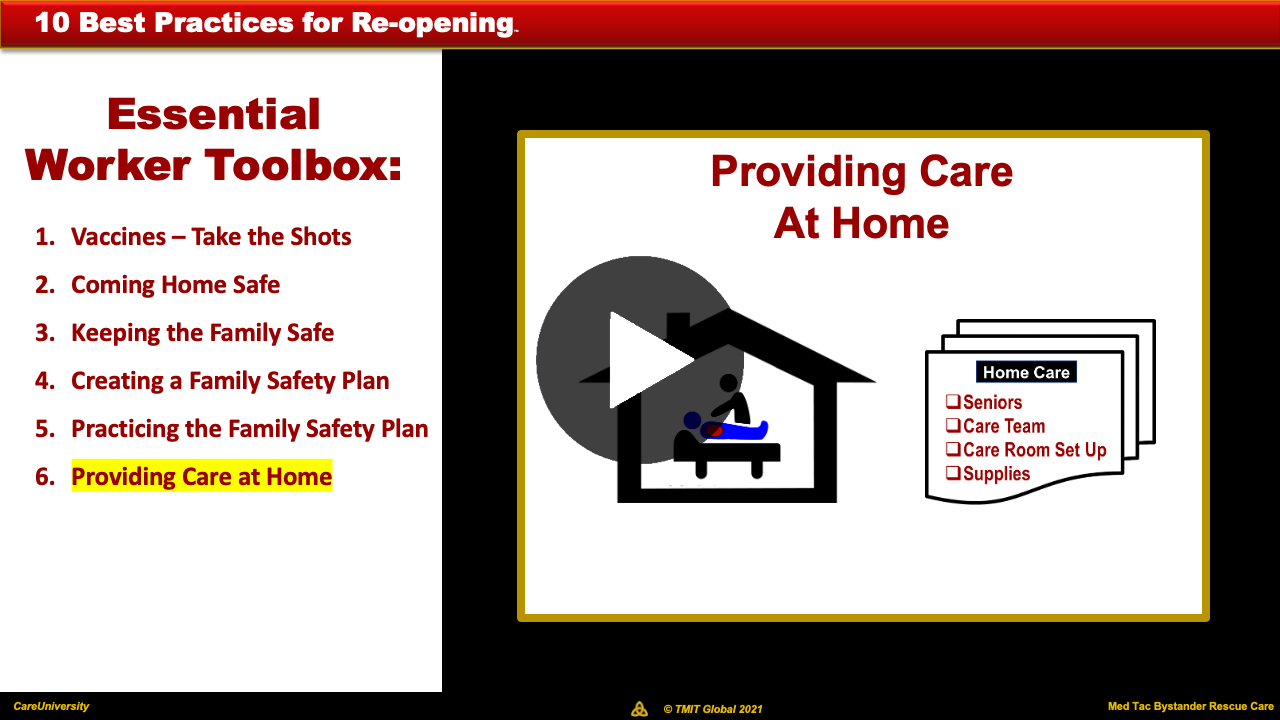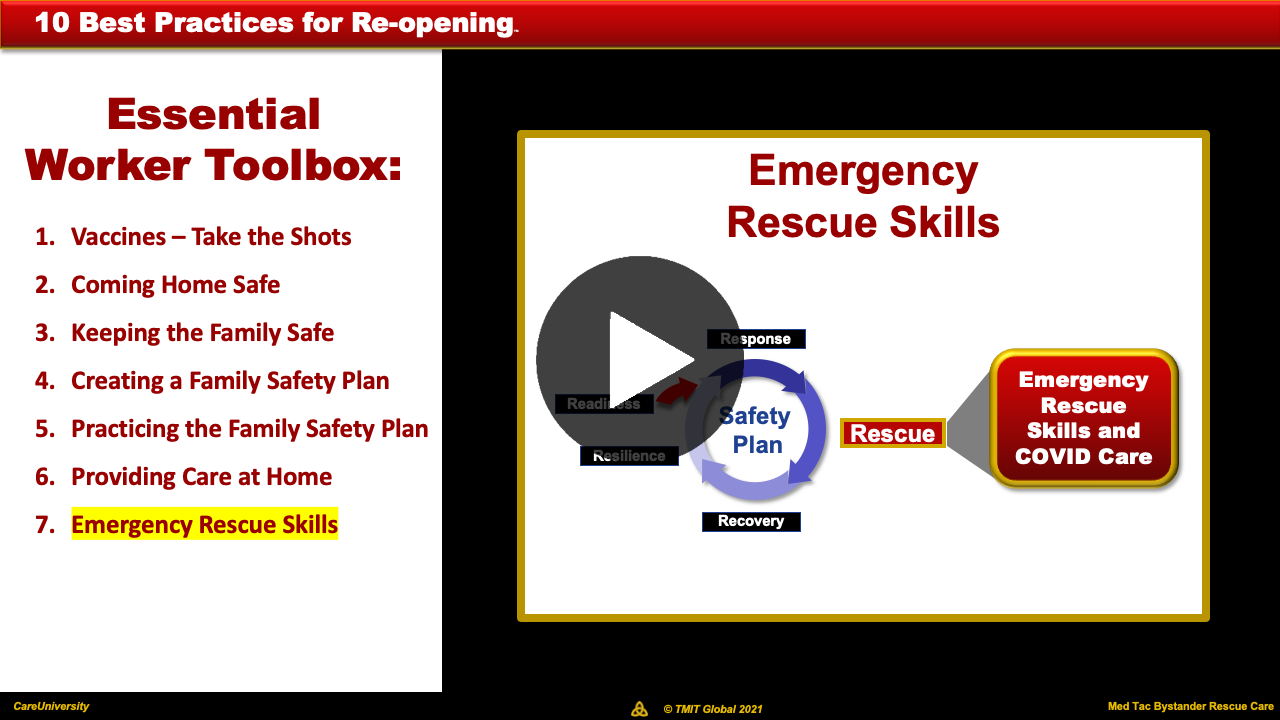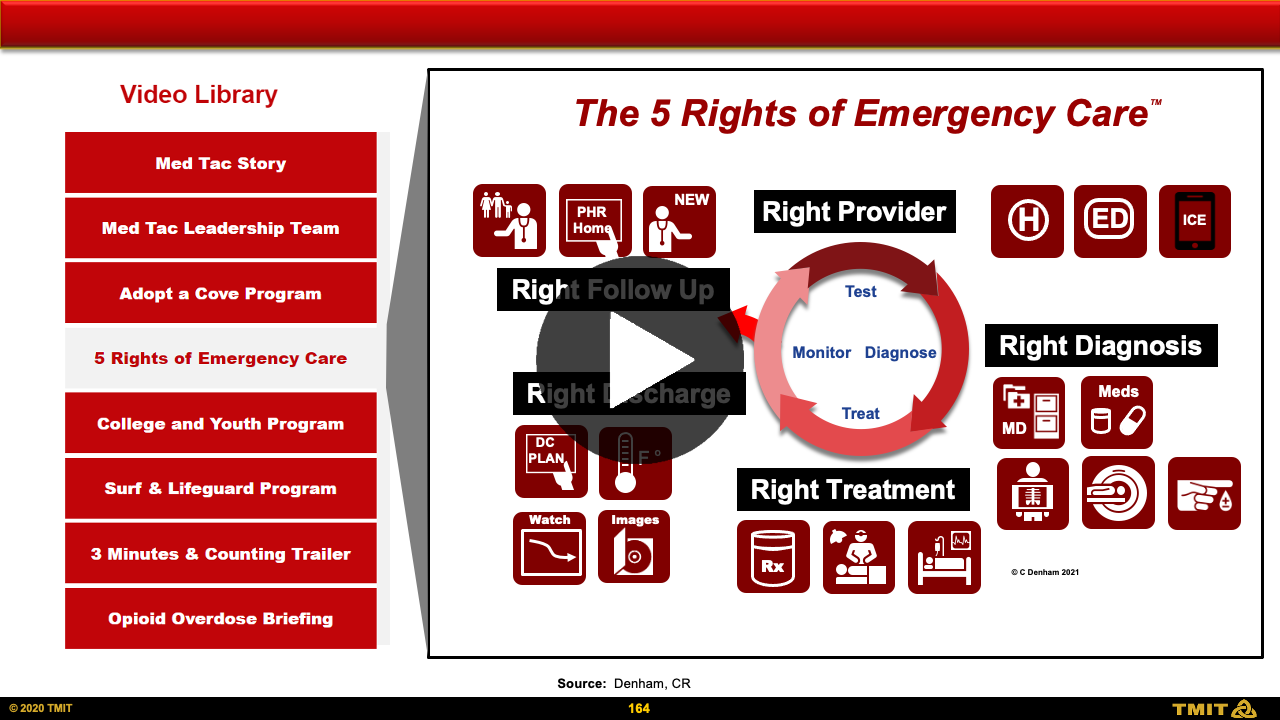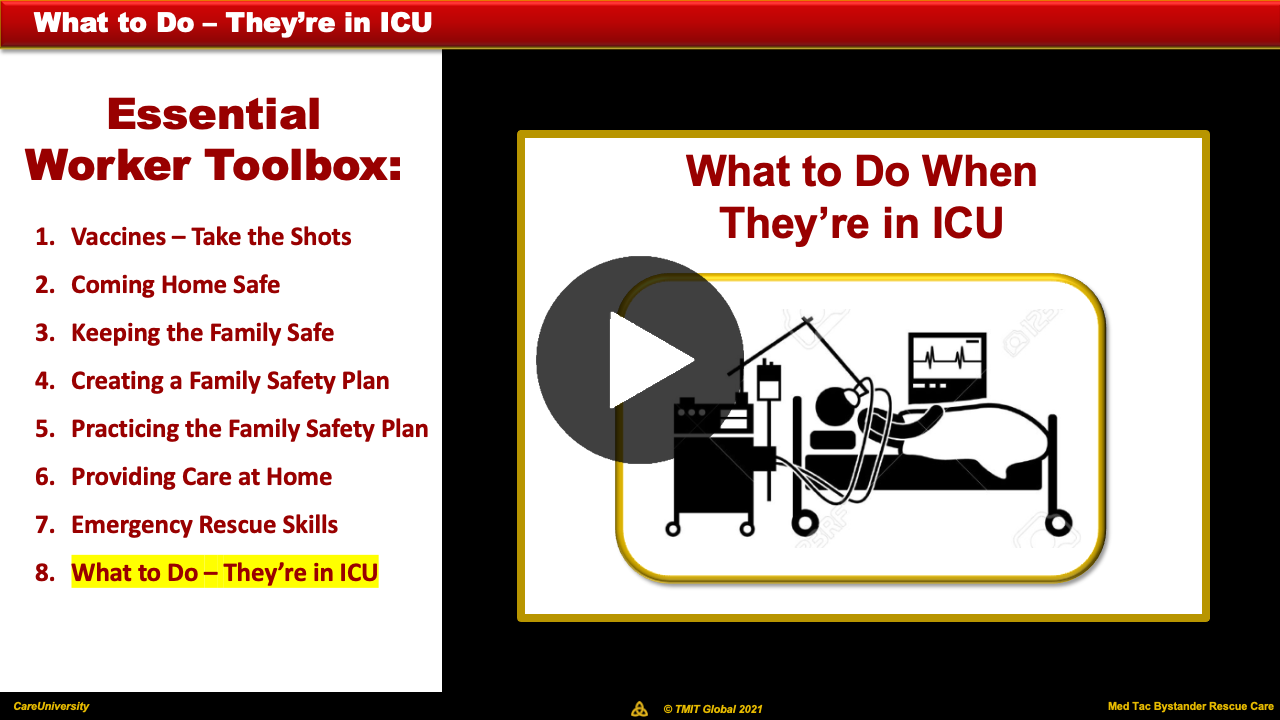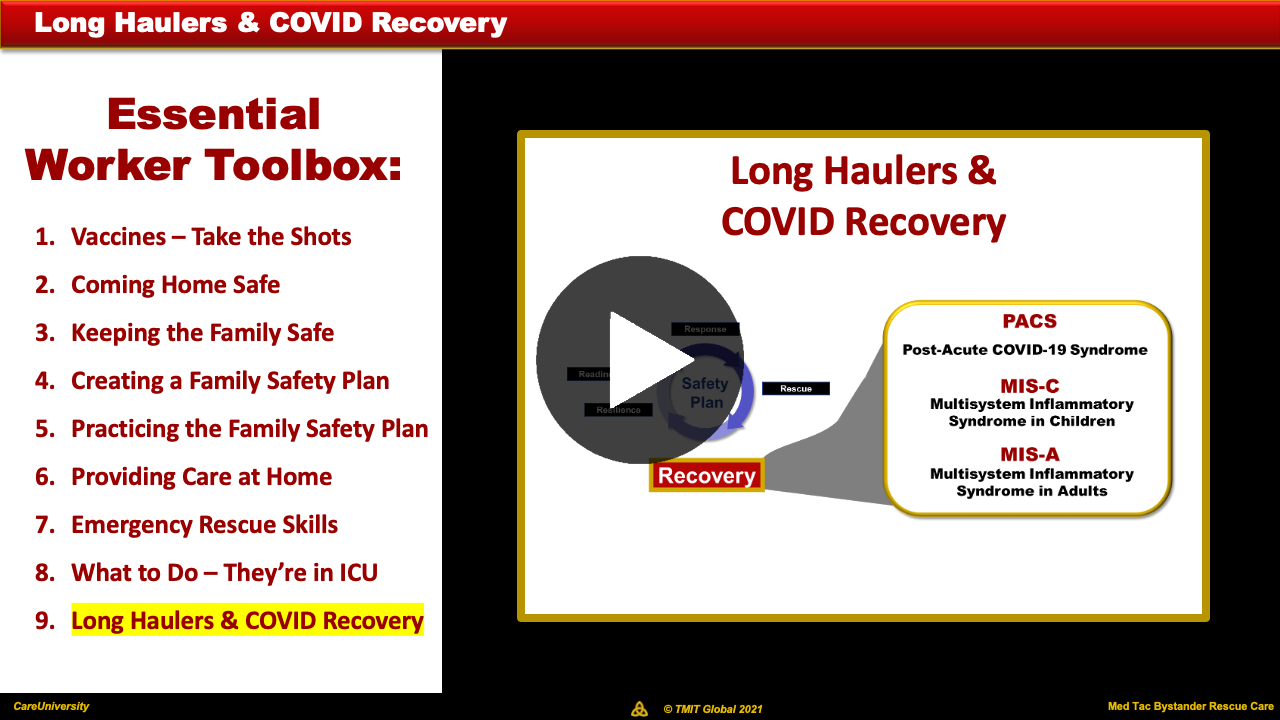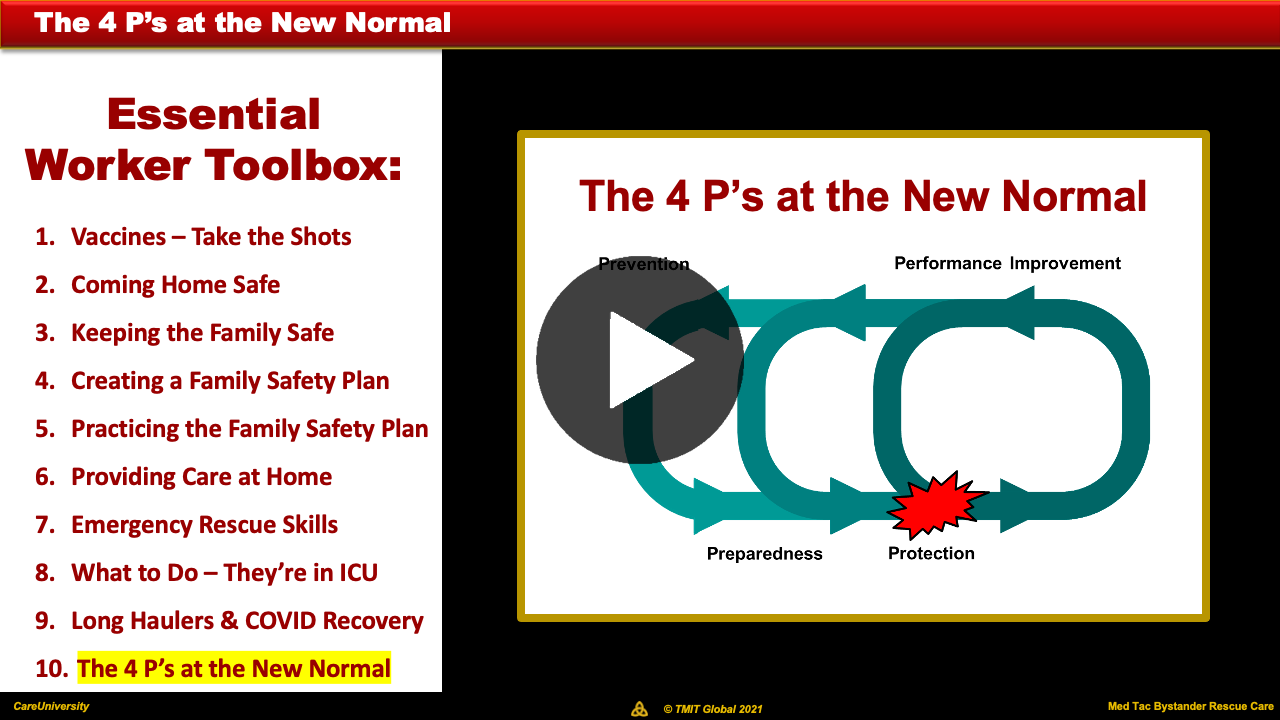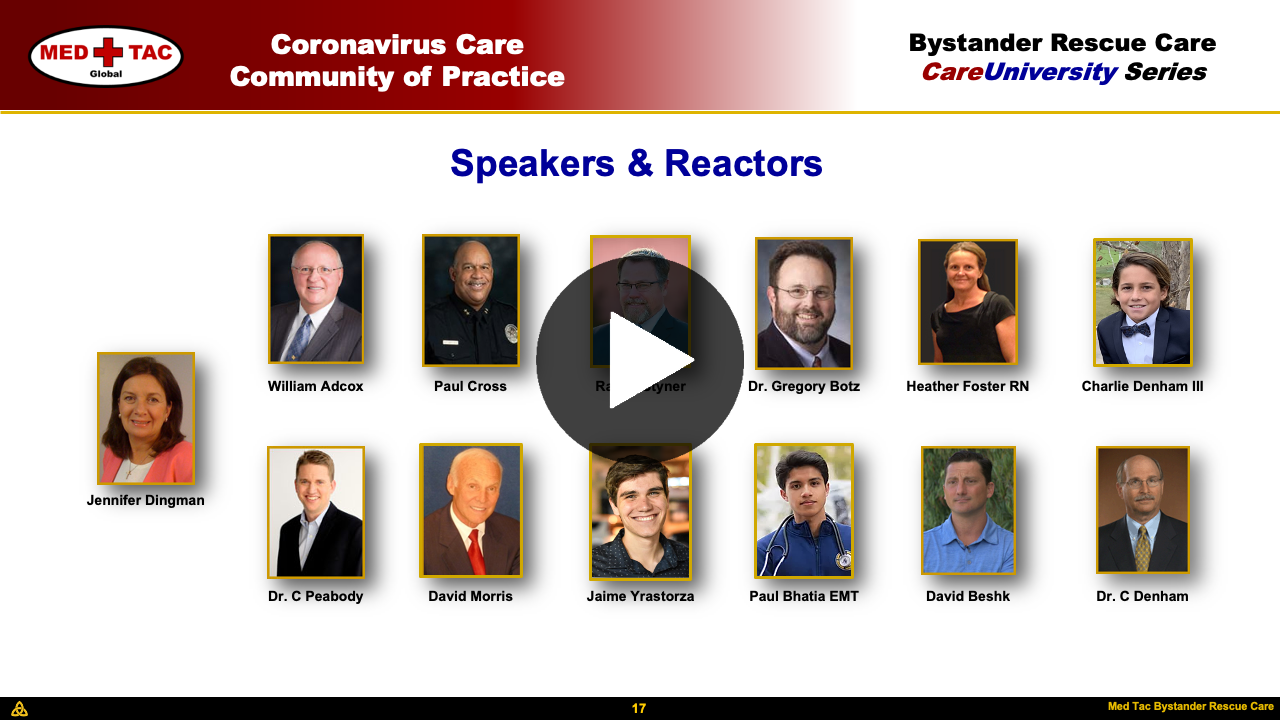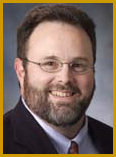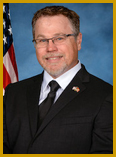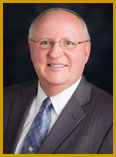
September 2, 2021
The Essential Worker Toolbox:
Breaking Family Transmission Chains
Family Survive & Thrive Guide™
Session Overview
More than 1,000 household responses have guided our learning community. Our professional first responders and the critical essential workers who keep the light, water, food, money, and education flowing in our communities are experiencing an unprecedented infection rate in their families with the current surge. Join us and learn about tools employees can use. What if a roommate or family member:

- Is exposed or infected?
- Needs to go the ED?
- Needs care at home?
- Is admitted to the ICU?
- Needs to recover at home?
- Gets Long Haul COVID disease?
Answer the following questions:
- Masks – do I upgrade or not?
- Vaccines – do I need a booster?
- If I have been infected, do I need a vaccine?
- What is a Family CFO – the Chief Family Officer

The Coronavirus Community of Practice and our panel of speakers and reaction panelists were introduced. Law enforcement and emergency response experts were complimented by caregivers in critical care and infection preventionists. A first responder human resources training and legal expert was introduced.
Webinar Video, and Downloads
Speaker Slide Set:
Click here to download the combined speakers’ slide set in PDF format – one (1) slide per page. ![]()
Click here to download the combined speakers’ slide set in PDF format – four (4) slides per page. ![]()
Complete Video
Introduction:
The Coronavirus Community of Practice and our panel of speakers and reaction panelists were introduced. Law enforcement and emergency response experts were complimented by caregivers in critical care and infection preventionists. A first responder human resources training and legal expert was introduced.
The CHSO (Chief Health Security Officer) & CFO (Chief Family Safety Officer)
Those who rely on the public health system to protect their business and their families are going to lose. Every organization needs someone to play the role of a Chief Health Security Officer who helps protect the clinical, operational, and financial health of the employees. Every family needs a Chief Family Officer to do the same.
Vaccines – Take the Shots
The four most important questions for those who are vaccinated or not are: Can I get it, can I spread it, can I get sick now, and can I get Long COVID? The answers for all four questions are “yes”. Vaccination dramatically reduces the risk for infection, hospitalization, and death. There is a significant case for vaccination.
Take the Shot…Save a Life
The Vaccination Conversation and Vaccination FAQ messages generated by college students, alumni, and young adults are resources that organizations and families can use to tackle the “movable middle”. Those families and individuals who are vaccine-hesitant. By no means are the resources intended to provoke anti-vaxers.
Coming Home Safe
Our 90-minute program developed early in the pandemic to address hot, cold, and safe zones were updated to address the evolving science and the necessary emphasis on aerosol risk and the diminished priority of cleaning high contact surfaces. Our original checklists have stood the test of time.
Masks: Filter, Fit, and Finish
The latest update on masks and the importance of upgrading masks from cloth to N95 or at least Level 3 ASTM medical surgical procedural mask is provided. We address the need for good filtration, a good fit with a seal so that air will not escape around the mask, and a careful finish so that one does not risk contamination after use.
Creating a Family Safety Plan
The 5 R’s of our national household family research project are addressed: Readiness, Response, Rescue, Recovery, and Resilience. Our templates and structure for family plans use this framework. The most common patient scenarios are covered to make sure that families are safe.
Family Lifeguard Program
A video produced during the 2020-2021 holiday surge introduces checklists families and friends can use to protect them during gatherings. Deployed to more than 18,000 families with great reviews, the approach is being disseminated as students return to school and families congregate during the Delta Surge.
Providing Care at Home
A set of checklists that had been developed early in the pandemic to convert a home room into an isolation room to allow safe care at home. They were updated to address the challenges of the Delta COVID surge. The prioritization risk of aerosol spread was addressed and the less intense focus on contact surfaces was covered.
Emergency Rescue Skills
It is critical that families understand what to watch for to assist loved ones and friends get emergency care. It is very important that everyone is protected as they transport someone who is sick to the hospital. Masking, keeping car windows open, and making sure to have charged mobile phone batteries are just a few concepts to keep in mind.
The 5 Rights of Emergency Care
There are critical issues in emergency care regardless of the emergency: The right provider, right diagnosis, right treatment, right discharge, and right follow up are key. These are reviewed by Dr. Christopher Peabody, the Director of the Innovation Center for Acute Care and an Associate Professor of Emergency Medicine at UCSF.
What to Do – They’re in ICU
Most essential workers and the general public do not know what to expect when a family member has to be admitted to the Intensive Care Unit (ICU). It is critical that families understand the care delivered and what a respirator is and why it is used and well as ECMO, the artificial lung which may have to be used for the sickest patients.
Long Haulers & COVID Recovery
The latest reported information on the frequency of COVID Long Haul disease was reviewed. The persistence of symptoms has been well documented now with fatigue being the most common. Even non-hospitalized patients have persistent symptoms that can degrade their performance on the job.
The 4 P’s at the New Normal
Our series of Survive and Thrive Courses were reviewed and mapped against the fundamentals of the 4 P’s: Prevention, Preparedness, Protection, and Performance Improvement. The updates to the programs revolve around the new science regarding aerosol spread, the variants, and the likelihood of future surge events.
Learning Objectives:
- Awareness: Participants become aware of the best practices and science related to vaccines, variants, and safe behaviors as the nation reopens.
- Accountability: Participants will learn who may be accountable for actions that can be taken to help family members, friends, and housemates related to vaccines and reopening processes.
- Ability: Participants will learn about the concepts, tools, and resources that can enable them support their family and friends before and after they are vaccinated.
- Action: Participants will learn about the line-of-sight actions that will help them support those who will be vaccinated and safe practices on the path to the new normal.
To request a Participation Document, please click here.
The CAREUniversity Team of TMIT Global, approved by the California Board of Registered Nursing, Provider Number 15996, will be issuing 1.5 contact hours for this webinar. TMIT Global is only providing nursing credit at this time.
